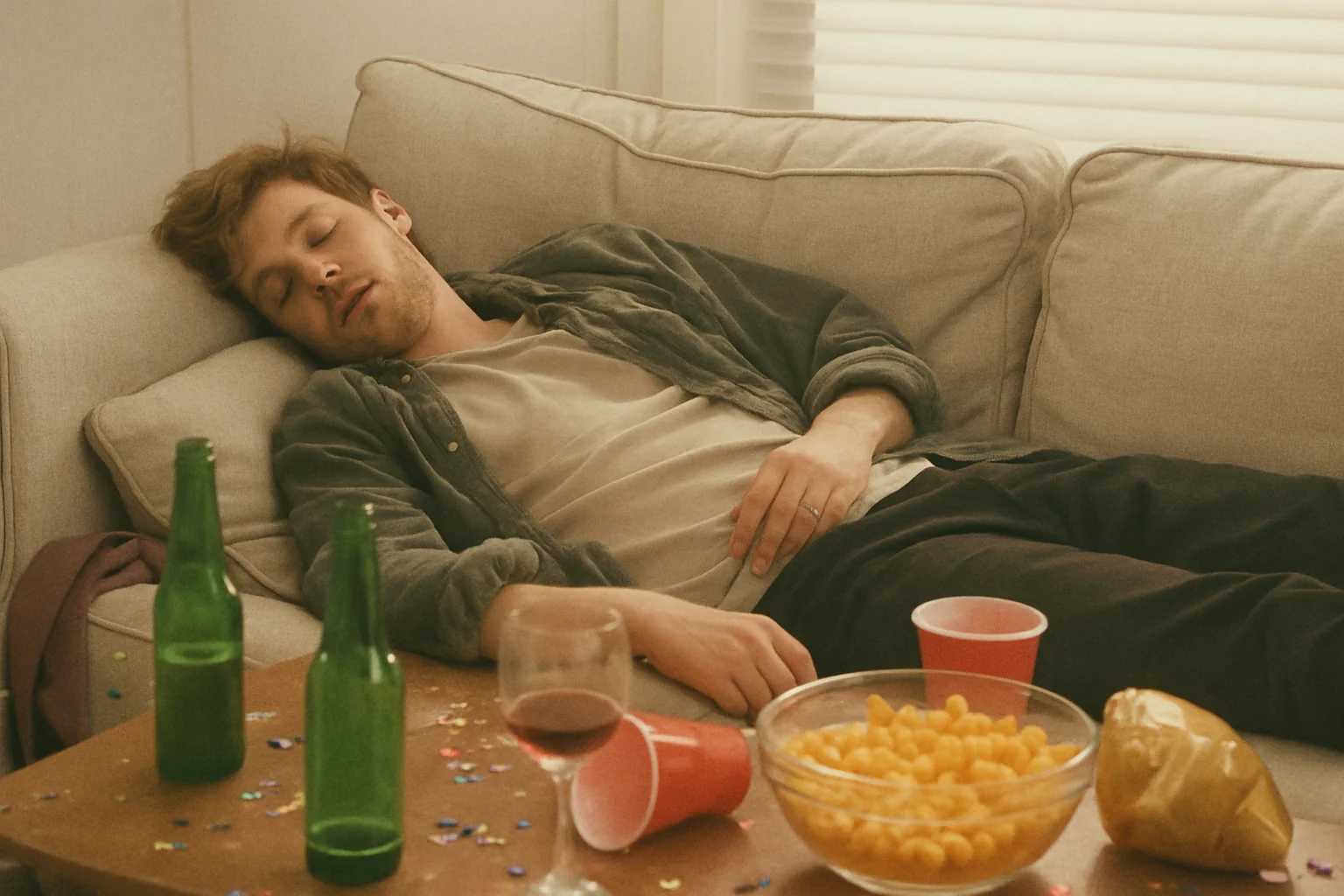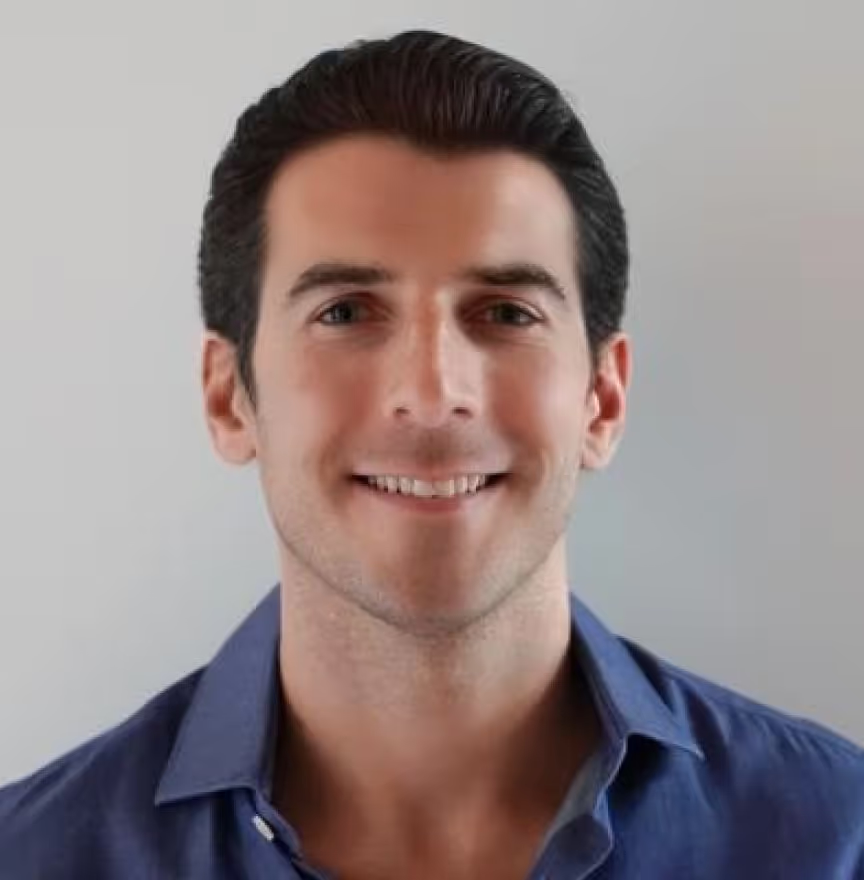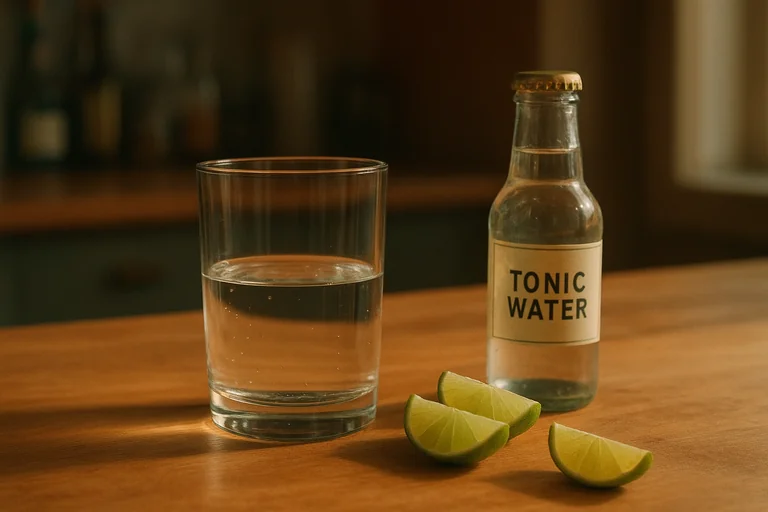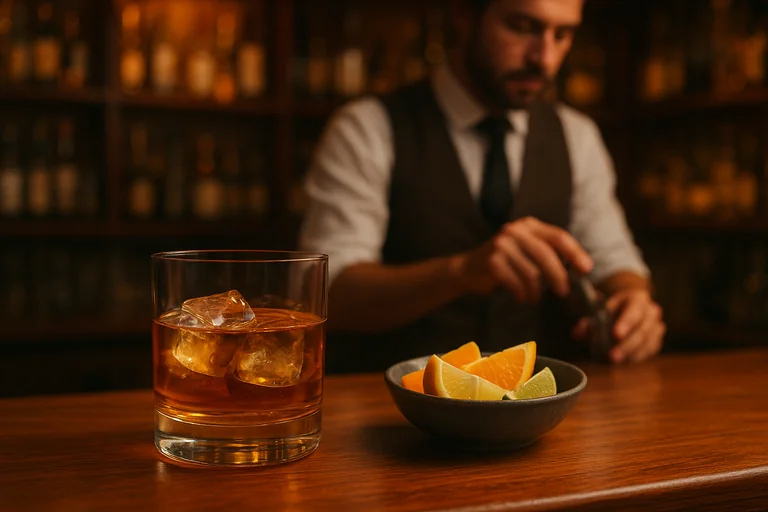A 2 minute assessment to get a personalized mental health or alcohol recovery plan.
Think that buzz from your first drink means alcohol gives you energy? The science behind what's actually happening in your brain may surprise you.
What You'll Discover:
- Why alcohol feels like a stimulant even though it's actually a depressant.
- The biphasic effect that tricks people into chasing an impossible buzz.
- How believing alcohol energizes you can lead to dangerous drinking patterns.
- What's really happening in your brain when you feel that initial energy boost.
As you take that first sip of wine at happy hour, something familiar happens. Your shoulders relax, conversation suddenly feels effortless, and you get that energetic, social feeling that makes everything seem more fun. You feel distinctly stimulated - more awake, more confident, more yourself.
Or at least, that's what you think. In actuality, that energy boost you're feeling is your brain being tricked by its own reward system while alcohol is already starting to depress your central nervous system. Two drinks at a Friday evening gathering may make you feel energized and witty. After all, it certainly doesn't feel like you're consuming a depressant. But in actuality, more recent research into the effects of alcohol has shown that even during that buzzy, energetic phase, alcohol is slowing down your brain function.
It may be time to reconsider what you think you know about alcohol if understanding your drinking patterns and their effects on your brain is a priority.
Why That First Drink Feels Like It's Giving You Energy When It's Actually Not
Don't let that familiar buzz fool you into thinking alcohol is some kind of stimulant. The experience of feeling energized from alcohol consumption is real, but what's causing it isn't what most people think.
Many researchers, doctors and neuroscientists will tell you that alcohol is always a central nervous system depressant - it's depressing your nervous system from the very first sip regardless of how energized you feel. Even if you only have one drink and stop while you're feeling good, you've consumed a depressant. It's particularly misleading if the drinking is done in stimulating environments like parties or bars. For example, having drinks at a lively Friday happy hour every week.
Now that you have a better idea of what alcohol actually is, let's delve further into why it creates such a convincing illusion of being a stimulant, some of which may be very surprising.
Alcohol Creates a Temporary High, But It Isn't Stimulation
The undeniable truth is that any kind of alcohol consumption involves introducing a depressant into your system. There's the immediate dopamine rush that masks this fact, as well as the inevitable crash that reveals it.
The Dopamine Trick
This is one of the major reasons why people mistakenly believe alcohol gives them energy. During the first phase of drinking, as your blood alcohol rises, your brain releases dopamine - the same chemical involved in pleasure and reward. Research has shown this dopamine surge creates:
- Increased talkativeness
- Feelings of confidence
- Reduced social anxiety
- Sense of excitement
- Mood elevation
Your Brain's Brakes Are Already Being Pressed
Although the dopamine makes you feel good, alcohol is simultaneously enhancing GABA - your brain's main inhibitory neurotransmitter. Heavy drinking makes this obvious through slurred speech and stumbling, but low to moderate drinking affects GABA too. The effects include:
- Slowed reaction times (even if you feel sharp)
- Reduced anxiety (which can feel like confidence)
- Impaired judgment (which can feel like spontaneity)
- Decreased motor control (subtle at first)
The Shift Always Happens
After that initial phase - usually 15-45 minutes per drink - the stimulating feelings fade. That's because dopamine release slows while GABA continues pressing your brain's brakes.
The second phase includes:
- Mental fog
- Physical tiredness
- Emotional volatility
- Poor coordination
- Desire to drink more to recapture the buzz
Worried alcohol consumption could be affecting your brain more than you realize? The pattern of chasing that initial feeling is often the first sign of developing issues.
The Mixing Misconception
Many people are surprised to find that combining alcohol with actual stimulants like caffeine doesn't solve the problem. It's now believed that these combinations are actually more dangerous because:
- Caffeine masks alcohol's depressant effects
- You feel alert while actually being impaired
- Risk of drinking more than intended increases
- The crash is often worse
Decision Framework
Another serious issue with believing alcohol is a stimulant is how it affects your choices about when and why to drink. Even if you think you're having 1-2 drinks for energy, you're actually:
- Consuming a depressant
- Impairing your judgment
- Setting up a later energy crash
- Potentially developing a pattern
The issue of thinking you need alcohol for energy or confidence is another problem that's been in the spotlight in recent years. There are far too many people who've developed dependencies this way, but even occasional use for "energy" can establish problematic patterns.
The Other Undeniable Risk - Your Brain Starts Needing the Fake Stimulation
The other major risk of using alcohol for its supposed energizing effects is that your brain adapts over time. You may only drink for social energy once a week now, but a year or two down the road it could become your only way to feel socially comfortable.
Not all people who use alcohol for energy develop dependencies, but it does significantly increase the odds compared to those who understand alcohol's true depressant nature. Very few people with alcohol use disorders started out understanding that they were using a depressant to chase an impossible stimulant effect. More often it's believing they've found something that gives them energy and confidence.
What might be most troubling is the fact that regular use - even once a week - changes your brain's natural dopamine and GABA balance. Other issues like disrupted sleep and increased baseline anxiety also develop from regularly using a depressant while thinking it's energizing you.
Why Understanding Alcohol is a Depressant Actually Matters
Now with better brain imaging and research techniques, scientists have proven that even moderate drinking affects neural pathways. But more importantly, understanding alcohol's true nature can change how you approach drinking entirely.
What's most concerning about the stimulant misconception is its effect on drinking patterns and expectations. Alcohol affects areas of the prefrontal cortex even during the "energetic" phase. Essentially, you feel sharper while actually having reduced cognitive function. That is why people make questionable decisions even during the "good" phase of drinking.
This is obvious at higher consumption levels, but brain studies have shown that even one drink impairs judgment while making you feel more confident. The more you drink seeking energy, the more pronounced this disconnect becomes. It will make you worse at reading social cues and making decisions even while feeling more socially capable.
The takeaway is that if you're drinking alcohol for energy or stimulation, you're using the wrong substance for the job and potentially setting yourself up for problems.
The good news is that once you understand alcohol is always a depressant, you can make more informed choices about whether, when, and how much to drink.
Taking Control Once You Realize You've Been Chasing an Impossible Buzz
Clearly, that energetic feeling from alcohol is temporary and misleading. But just because it's an illusion doesn't mean it isn't powerful.
Many people who discover alcohol's true depressant nature realize they've been stuck in a cycle - drinking for energy, crashing, feeling low, then drinking again for energy. It's a pattern that seems to work until it doesn't.
The misconception that alcohol provides energy has led countless people to develop problematic drinking patterns without realizing it. After all, who thinks they're developing a problem when they're just trying to be more social and energetic?
If you've been using alcohol as your go-to for social energy, confidence, or mood boosts, you're not alone. This is an incredibly common pattern that many people don't recognize until they try to socialize without drinking and find it surprisingly difficult.
If you'd like to reduce your reliance on alcohol for social situations or energy, then Naltrexone treatments could be a solution. It's an FDA-approved medication-assisted treatment (MAT) that can help people break the cycle of chasing alcohol's false stimulation. It gives you control over your drinking patterns and helps reset your brain's reward system.
Interested in exploring whether you've been using alcohol as a false stimulant? Then take the online Alcohol Use Assessment to better understand your relationship with alcohol and find out if medication-assisted treatment is an option for you.




